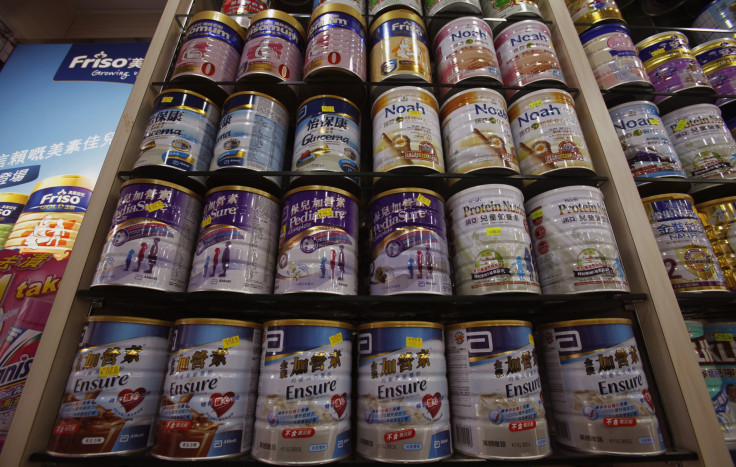Distrust Of Domestic Brands Leads Chinese Tourists To Stock Up On Baby Formula While Abroad

An increasing number of Chinese tourists are hoarding up on baby-milk powder during their trips abroad, resulting in the shortage of infant formula in a dozen countries from the Netherlands to New Zealand, the New York Times said in a report.
Distrust of domestic brands by Chinese parents has led to a fall in the local supply of baby formula, highlighting how food safety concerns in China -- the world's most populous nation -- can affect other countries around the world, the report said.
“Milk powder safety is the issue of No. 1 concern among pregnant women and new-baby households,” Allen Wang, chief executive and co-founder of Babytree.com, an online forum for Chinese parents, told the New York Times. “People are asking friends, ‘What do you recommend? How do you store up foreign brands? Can you help me if you travel overseas?’”
About two-thirds of Chinese households use baby formula, with foreign brands holding a 60 percent market share, Wang told the New York Times. And, the trend has prompted Chinese authorities to put a limit on the quantity of baby-milk powder consumers can bring back home from abroad.
According to the report, retail chains such as Boots and Sainsbury’s in the UK now allow only two cans of baby-milk powder on every purchase. In Hong Kong, customs officials have enforced a two-can or four-pound restriction on infant formula, and those flouting the limit would be fined up to $6,500 and two years imprisonment, the report said.
In mainland China, too, the dependence on imported baby-milk powder has given rise to a “buy China” nationalistic movement, with state-run news media urging domestic brands to improve their quality to compete with foreign brands.
Distrust of domestic brands by Chinese consumers stemmed from an incident in 2008 when six babies died, and more than 300,000 children fell ill after consuming milk products, which contained melamine, a toxic chemical.
“How can we still trust mainland-made food after reading all these horrendous stories on food safety issues?” Tina, 28, the mother of a baby girl, told The New York Times. “We are the parents of our children, and nobody can accuse us for just wanting the best for our babies. It’s not that we don’t love our country — we just dare not take the risk.”
© Copyright IBTimes 2025. All rights reserved.





















